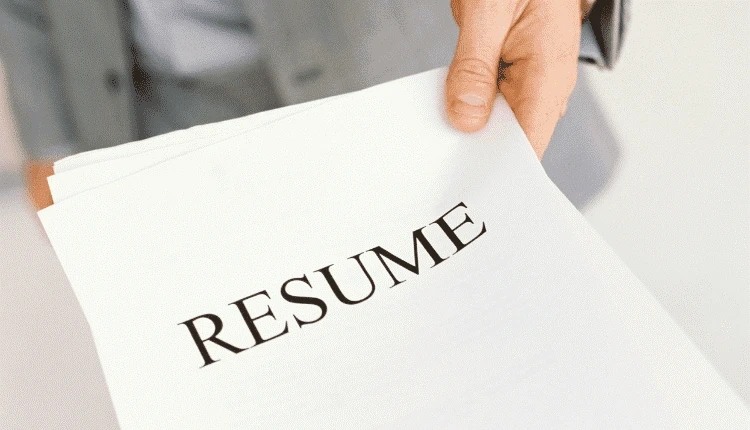Differences between CV and Resume
You might have often heard the terms “resume” or “CV” which have been considered to be the same thing. However, both these job applicant documents are quite different when it comes to cv vs resume difference between them which should be clearly understood.
A CV (Curriculum Vitae), is a complete record of your whole pro career. Moreover, it delivers a comprehensive outlook towards your career choices, including your awards, academic events, seminars, and achievements, and is a document that is best suited for academic positions.
CV Breakdown
A curriculum vitae(CV) provides extensive details of the job applicant and their relevant educational and work history details. Furthermore, considering various job specifications and the concerned job-seeking professional, it will have information like
- Professional photo
- Educational history
- Contact information
- Areas of expertise
- Research contributions
- Teaching experiences
- Honors
- Conference engagements
- Publications
- Awards
- Honors
- Scholarships
- Grants
- Voluntary work
- Licenses
- Certifications
- References
Take the example of a professor or academic applicant, for instance, example, who would definitely provide a clear and detailed history of their most successful publications and research.
A Deeper Look at Resumes
On the other hand, a resume provides a short outline of the job applicant\'s main skills, professional job history, and qualifications. It is usually a small document written for 1 or 2 pages, with the main focus on highlighting the applicant’s most relevant skills and job experiences.
Resume documents have broad usage and are ideal for applying to a wide range of professional job roles and industries, especially for those looking to secure their dream job in the United States.
Vital aspect concerning Resume
A resume document provides a quick view of your achieved excellence milestones. It usually includes various job applicant details, such as
- Summary or objective
- Job title
- Contact information
- Interests
- Work or job history
- Standout work skills
For example, an aspiring software engineer would most likely likely highlight their strong skills such as project management, coding mastery, and completed work projects.
Choosing between a CV or Resume
When considering applying for your dream job, choosing between a resume or a CV will mostly depend on the specific job requirements. Resumes coupled with targeted cover letters are a popular choice that suits various job opportunities in Canada or the U.S.A.
On the other hand, a CV is desirable for those job applications that require complete details of the candidate, including their skills, work history, awards, publications, and research. Candidates seeking roles in academic, medical, or legal fields often put skills on a resume to succinctly showcase their qualifications and expertise.
Outstanding Differences Between CV and Resume
Choosing a resume or CV, while both are important documents for the recruiter, each has its differentiating factors that set them apart. For instance, resumes have well-structured layouts based on the job or industry, while CVs are usually open-ended and can be deeply customized.
Furthermore, CVs are usually used to seek out top management positions among various medical, academic, legal, or research-oriented roles, while resumes are targeted toward the general industry.
The Curriculum Vitae (CV) is usually favored among many European and Asian countries, while a resume document is preferred for all kinds of jobs available in the U.S. or Canada. Moreover, resumes are short, while CVs are not restricted to any format.
Furthermore, a resume usually highlights a candidate\'s proficiency and skills to match the job application by highlighting the most demanded skills and work history, while a CV provides complete details of the candidate\'s professional life and academic details.
Creating a good CV
Crafting a good targeted CV requires a deep understanding of your applicable job and professional career. You can start by listing down the applicant’s name, contact, professional job title, and suitable professional photo.
Now, write down a compelling career summary by highlighting your career’s best achievements. Moreover, you must research relevant work experiences, and highlight relevant work positions with accountable roles.
Ensure that you provide accurate details concerning your qualifications, institutions, and dates of degree completion. You can also include important parts such as your publications, honors, and certifications. Make sure your CV is customized to your resume according to your desired job application.
Building a Good Resume
A great resume is highly focused and brief. You can start by listing out your career summary or objective along with your personal information. Followed by a detailed yet short account of your work experience, using bullet points to show your achievements along with your education.
Moreover, you should also remember to tailor your skills according to your target job application, listing relevant details where needed. You need to make sure that your resume is limited to a maximum of two pages and is free from all kinds of errors.
CV or Resume: Which one to Choose?
Still confused regarding choosing between a resume or a CV? Remember, your choice depends on the specific job requirements and its geographic location. Resumes are preferred among jobs listed for the U.S. or Canada.
On the other hand, CVs are recommended for Asian and European nations, especially for those seeking to secure their dream job roles in science, medicine, law, or academia. Make sure to read the relevant job description completely and highlight skills or experiences best suited.
Conclusion
The various astonishing factors concerning CV vs resume difference need to be understood completely. Furthermore, resumes and CVs are very important as they can prove to be differentiating factors for gaining a market edge against your competition to secure your ideal job.






